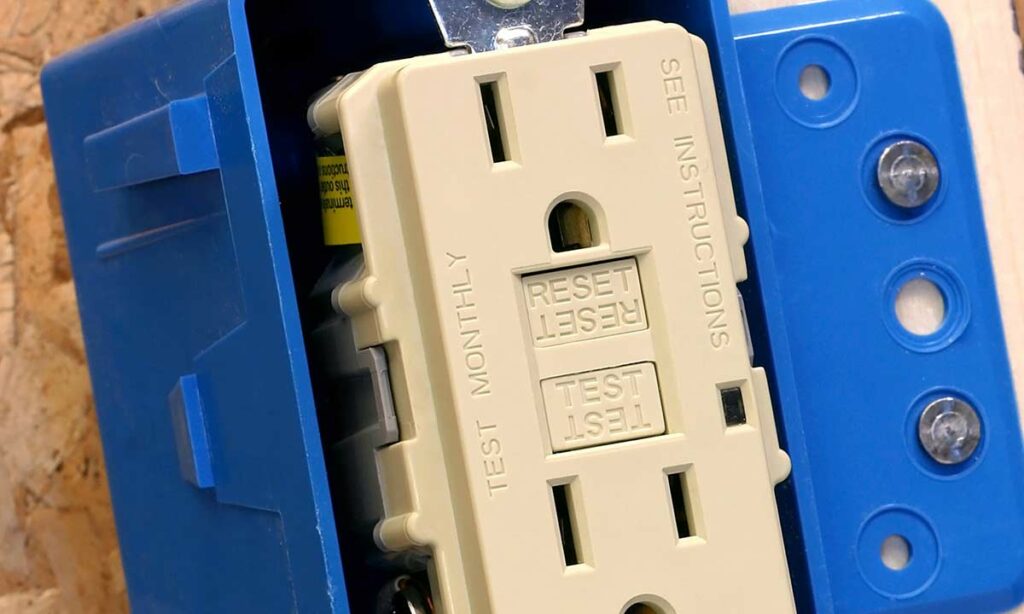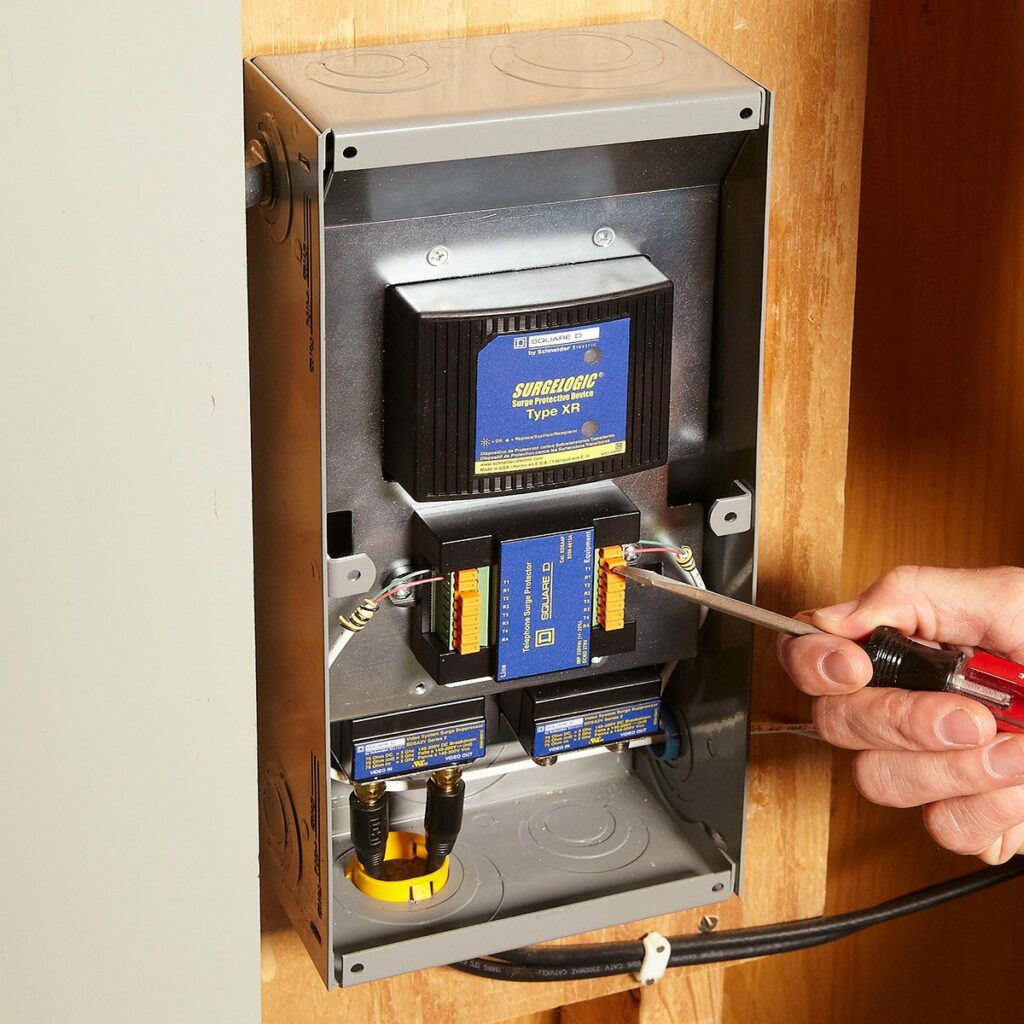Homeowners schedule home renovation projects for several reasons. While some renovate to upgrade their old homes, others do so to expand their living space, increase property value, or before selling. Regardless of the reason behind the renovation, you should consider upgrading your electrical systems. Doing this not only improves usability and functionality but also ensures that your renovated homes meet the recommended safety standards.
Most homeowners don’t know, but according to the National Electrical Code, residential property owners should update electrical systems regularly to meet the legal requirements. Homes with poor wiring and outdated electrical connections are vulnerable to electrical shocks and fires. Power surges, tripping circuit breakers, and blackouts are also frustrating.
Most homeowners don’t see the importance of updating their electrical panel until they experience problems. This is probably because an emergency electrician is able to fix most residential electrical problems. Nonetheless, you should upgrade your electrical system for the following reasons:
Table of Contents
1. An Outdated Electrical Panel
Electrical panels should be replaced after 25 to 40 years. You should begin by evaluating the age of your home. If your home is over 25 years old and the electrical panel has never been replaced, an electrical system upgrade should feature in your renovation checklist.
Double tapping was a common practice years ago. If your home is very old, chances are it has dual wires connected to a single breaker. This causes overcrowding of the circuit breaker box, which increases the risk of electrical fires and arc flashes. A professional electrician can inspect your system and suggest if it’s time to replace the existing panel.
Renovation is also a perfect time to upgrade other electrical system components. For instance, modern household appliances use GFCI outlets. You also need surge protectors if you have sensitive electronic devices, especially for homeowners with equipped home offices. That aside, you can’t enjoy most of these upgrades if your electrical panel is outdated.
2. Inconsistent Electrical Systems
Most homeowners have become accustomed to problematic wiring, especially those who live in old homes. While you can easily get used to this, inconsistent electrical systems are dangerous. Common signs of problematic wiring include:
- Hissing sound in the breaker box
- Flickering lights
- Ozone smell
- Sparks when electrical devices are plugged
- Warm electrical cords
- If lights dim when large appliances are turned on
- Discoloration and scorch marks on electrical outlets
- Small shocks on appliances
If you’ve experienced any of these signs, you should consider an electrical system upgrade.
3. Frequent Electrical Repairs and Replacements
Like problematic wiring, you shouldn’t be used to frequent electrical repairs and replacements. Electrical fuses were glorified state-of-the-art equipment some years back. Some local hardware stores still sell them in different sizes. Unfortunately, they aren’t as effective as they were before. You should consider an upgrade if you replace electrical fuses and other electrical components frequently. For the corporate sector constant repairing can be a nuisance, so you can also consider a commercial roof cooperative purchasing..
Top Home Remodel Electrical Upgrades
You should prioritize the following electrical upgrades during your renovation:
1) Electrical Outlets
If your home is old, chances are you have outdated electrical outlets, some even without ground wire. Upgrading from the traditional two-prong outlets reduces the risk of fire, electrical surges, and shocks. You should also consider the size of your family and future electrical needs. A growing family comes with increasing electrical needs. Renovation is the perfect opportunity to install additional electrical outlets in different rooms. You should upgrade and increase the electrical outlets in the following rooms:
- Home office – With many people shifting into remote work models, home offices are becoming more important than before. New technologies like desktop computers, laptops, and printers also increase demand. Having more outlets in your home office reduces the risk of overloaded power strips. It also eliminates reliance on extensions, which are a tripping hazard.
- Outdoor spaces – You should also install power outlets in your outdoor spaces, such as patios, decks, and outdoor kitchens. However, you should use GFCI outlets to protect them from water and humidity.
- Kitchens – Modern kitchens have very demanding appliances. You’ll need more electrical outlets to service toasters, refrigerators, microwaves, and ovens. Like the outdoor space, use GFCI outlets in the kitchen because of the abundance of water and moisture.
- Children’s rooms – Kids rely on technological devices more than ever. From entertainment systems and video games to enhanced lighting, your kid’s room needs more outlets.
2) Smart Home Upgrades

Smart home technology has gained traction over the last few years. Homeowners can now control various features of their homes from their tablets or smartphone. The benefits of making smart home upgrades go beyond automated lighting and temperature control. Smart home upgrades also improve your home’s security and save on energy consumption. Below are popular smart home upgrades to consider during renovations:
- Smart locks
- Smart thermostats
- Smart home alarm system
- Smart light bulbs
- Motion detectors
- Doorbells and surveillance systems
3) GFCIs

Ground Fault Circuit Interrupters, or GFCI, are important kitchen, bathroom, and outdoor installations. GFCIs are effective and safe devices, making them perfect for new constructions and renovations. Instead of tripping circuit breakers, GFCIs switch off immediately if electrical outlets come into contact with water or moisture to avoid causing shocks or fire.
GFCIs are inexpensive and easy to install, making them a perfect electrical upgrade to consider during a home renovation. The key is ensuring that you have the right GFCI outlet for different areas of your home.
4) Surge Protectors

Your electrical upgrades certainly won’t be complete without installing surge protectors. Surge protectors are important components that protect household appliances and devices from undue power harm. Some homes have power strips, which might be effective, but don’t work well in large-scale electrical systems. Installing surge protectors is the best way to protect your home and electrical devices.
Endnote
Most homeowners focus on their bathrooms, kitchen, roof, room addition, and HVAC upgrades when planning home renovations. While they are key upgrades that improve home value, curb appeal, and resale value, you shouldn’t ignore the importance of electrical upgrades. Making these changes ensures that you are up to date with legal codes and protects your home from fire risks.
